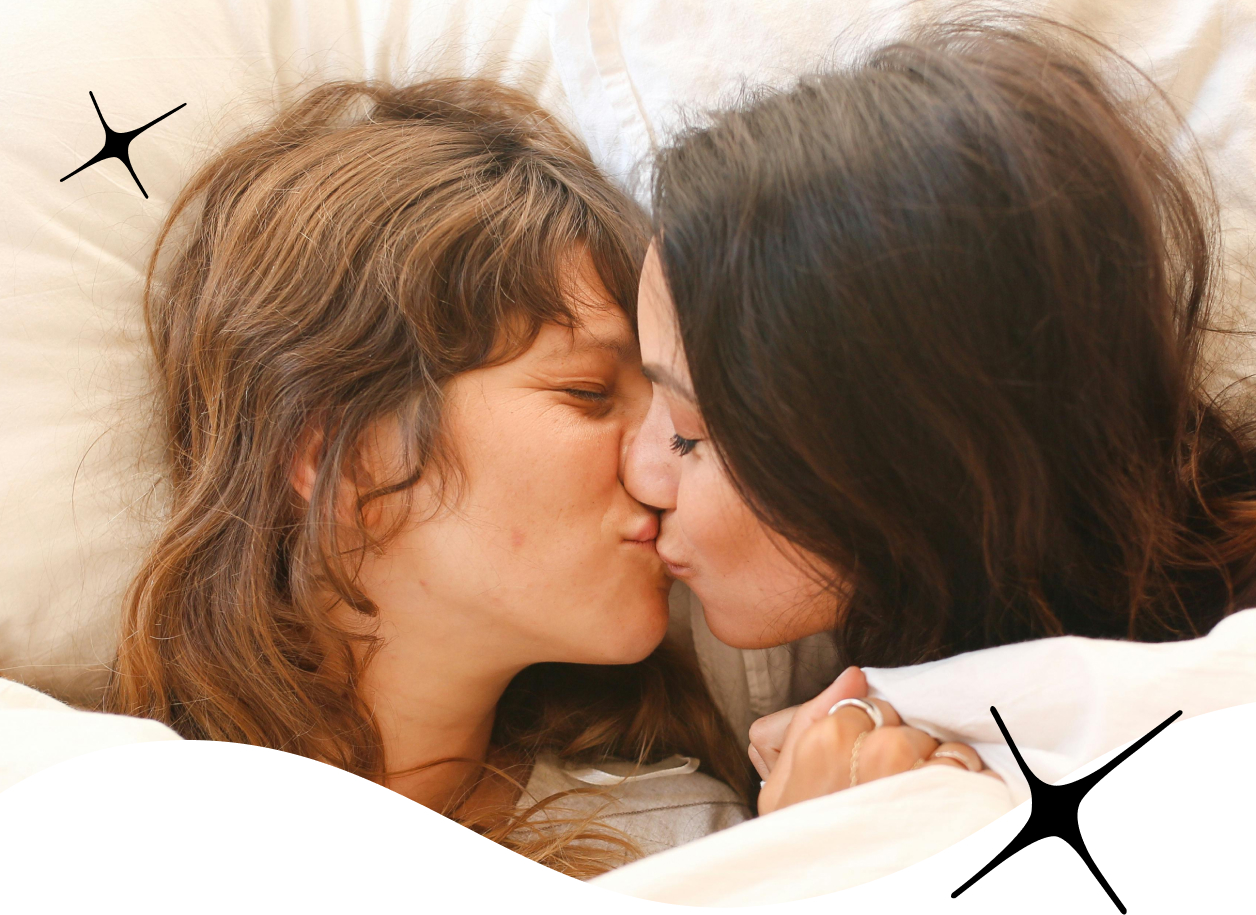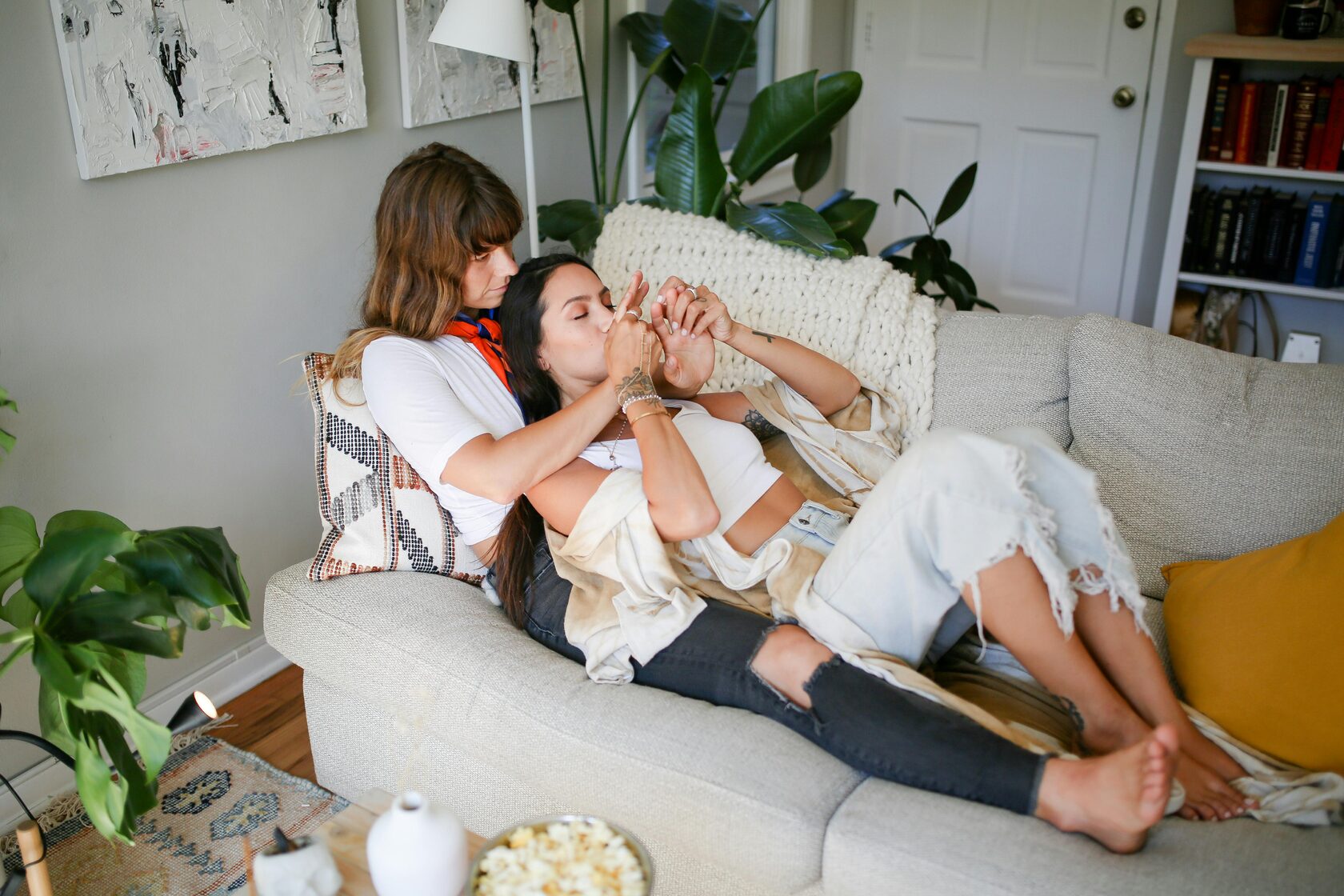Sexuality is a spectrum, and there are many variations to who people are attracted to. In this article, Flure is going to explore pansexuality and bisexuality. We’ll look at both terms, see what they mean, how they compare, and what are some of the common misconceptions about them.

What is bisexual?
A bisexual individual is someone who is sexually and romantically attracted to more than one gender. This means that they may want to date men, women, trans, non-binary folks, and someone else too.
Note: Some believe the “bi” in bisexual is for two, meaning that bisexuals are only attracted to men and women, and not the non-binary, trans people, or someone else. The term bisexual is rather old and dates back centuries when the idea of non-binary and other alternatives wasn’t really out there. These days, however, many individuals imply more than two genders when they talk about being bisexual. Still, it’s good to check with someone about how they define bisexuality, especially if you’re trying to set them up with one of your friends.
What is pansexual?
Pansexuals are sexually and romantically attracted to all genders. They still get to have their preferences, of course, so they won’t have a crush on any man or a woman, but they’re open to dating pretty much anyone. For pansexuals, the character and qualities of the person have a much higher priority than gender.
Pansexual vs bisexual: key differences
Both pansexual and bisexual exist under the same bisexuality umbrella, but they shouldn’t be used interchangeably.
The biggest difference between pansexuality and bisexuality, perhaps, is that a pansexual individual is open to dating all genders, including genderqueer and genderfluid. Bisexuals, in turn, will date some genders and are often attracted to men, women, and non-binary people.
Pansexuality is often considered to be more open-minded and inclusive because they can date anyone, but also due to them seeing personality and character, as well as emotional connection, as something of equal if not higher importance than gender.
Common misconceptions about pansexuals and bisexuals

Unfortunately, unless you’re heterosexual, your sexual and romantic preferences are most likely scrutinized. Both bisexual and pansexual people experience a lot of microaggressions, and there are quite a few misconceptions circulating around.
Here are some of the most common ones.
You’re just gay
Bisexual people are really just gay, and they need to come out and stop playing. Yep, even in 2024 many people still believe that bisexuality is just a phase. And don’t get us wrong, sometimes people actually transition to gay and think that they’re bi for some time. This can happen if the person had a conservative upbringing and didn’t have a chance to explore their own sexuality, or they’re just confused. However, most of the time someone says they’re bisexual it really is so. Shockingly, both straight and gay communities struggle with accepting bisexuals which is very sad. Luckily, with the shifts and transformations of societal norms, there is more information out there, and people become more knowledgeable and change their perceptions.
The infidelity accusations
Both pansexuals and bisexuals are often accused of not being able to stay in monogamous relationships. This is obviously not true. There are millions of people on the planet who identify as pansexual or bisexual. Some of them are polyamorous, for sure, but there are obviously lots of people who are monogamous. Saying that all people of specific sexuality are like this or that is plain wrong and gives into toxic stereotypes.
Transphobia claims
Another misconception about both sexualities is that they’re transphobic. It’s a weird one because pansexuals will literally date anyone and they’re not stressed about gender, so whether the person is cis or trans is not relevant, at least not to all pansexuals. And it’s the same with bisexual people – some of them will be okay with dating trans people, some will not. And just like anyone, bisexuals can theoretically be transphobic, but it’s not the default expectation that they are.
Pansexuality is just a fad
Like many up-and-coming terms, pansexuality is criticized for being a fad that some bisexuals call themselves to appear trendy and cool and in with the it-crowd. Ridiculous, right? Sexuality is not a badge that we put on ourselves to build a certain persona. People like who they like, and if someone tells you they’re pansexual and they would literally date anybody, the best you can do is to believe them.
Are there people out there who are trying to identify with certain communities for the wrong reasons? Obviously. However, it’s an unfortunate exception, not the rule.
Can’t be pan/bisexual until you’ve dated every gender
There are so many odd ideas and misconceptions out there. The one that the Flure team finds particularly wild is that a person can’t be pansexual or bisexual unless they’ve dated all the genders that respective sexualities are attracted to. Like, what’s next? We’ll be saying that you can’t be called a woman unless you’ve given birth? This odd take is quite common, but it’s groundless.
How to know if you are pansexual or bisexual

You’d think that understanding your own sexuality would come naturally to you, but unfortunately, it’s not always the case. But don’t beat yourself up if you struggle with finding out whether you’re pansexual or bisexual.
Here are the questions to ask yourself that will guide you in the right direction:
- What genders am I attracted to?
- Do I see myself dating literally anyone, or do I have more narrow preferences?
- Is my attraction fluid? Can I fancy a specific gender one day, and feel nothing the next?
- What labels am I comfortable with? Am I okay with being called bisexual and pansexual?
These four questions will be a good starting point. However, you’d also benefit from reaching out to local communities and asking someone to have a heart-to-heart with you. Hearing the experiences and perspectives of others will likely be insightful and you might also get validation for your personal journey.
Can you be both pansexual and bisexual?
Sexual orientation and attraction are complex. There’s no definite formula or a standard, so you can theoretically call yourself both pansexual or bisexual. However, there is a difference between the two terms, and you should aim to find the label and the sexuality that matches best with your beliefs and experiences.
A good idea would be to look into the entire spectrum and learn more about being omnisexual, demisexual, and polysexual, in addition to the two sexualities we discussed today. Perhaps something else would fit you even more?
Also, know that you don’t have to stick to a certain label for the rest of your life. It’s completely fine to explore and evolve, so don’t ever feel like you have to choose once and live with this decision for the rest of your life.
Flure isn’t just a dating app—it’s your gateway to meaningful connections and unforgettable experiences. Whether you’re seeking new friendships, someone special, or just exploring, Flure makes it easy to find your kind of people. Built on trust, safety, and authenticity, Flure turns your online dating into something truly magical. Ready to make connections that matter? Join Flure today and see where it takes you!








